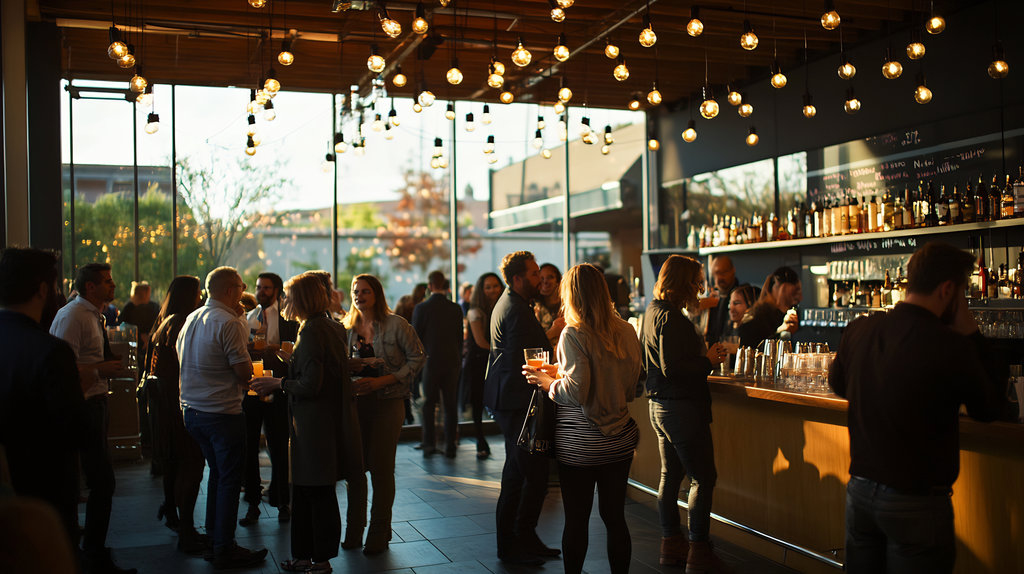Bars and restaurants profit from serving alcohol, but what happens when their negligence fuels tragedy on New Mexico roads? Under the state’s dram shop laws, establishments that over-serve visibly intoxicated patrons can face legal consequences when those customers cause accidents.
The Dominguez Law Firm understands the complexities of dram shop cases and fights tirelessly to hold all responsible parties accountable. Our experienced team possesses a thorough knowledge of New Mexico’s specific dram shop laws, building strong cases for accident victims seeking compensation when a bar over-serves a drunk driver.
New Mexico’s Dram Shop Law Requirements
New Mexico Statutes Annotated Section 41-11-1 establishes the circumstances under which bars and restaurants can be held liable for accidents caused by intoxicated patrons. The law creates civil liability for licensed alcohol vendors who serve alcohol to intoxicated individuals under specific circumstances.
To successfully sue a bar for over-serving, you must prove two key elements:
- The establishment must be a licensed alcohol vendor, which includes bars, restaurants, taverns, and any business with a liquor license.
- The establishment must have served alcohol to someone when it was “reasonably apparent” the person was intoxicated, or the establishment knew the person was drunk.
Both elements must occur to hold a bar liable for over-serving a drunk driver.
What “Reasonably Apparent” Means
The term “reasonably apparent” has an objective meaning under New Mexico law. Intoxication must be “visible, evident, and easily observed” by establishment employees. This standard doesn’t require individual employees to personally believe a customer is drunk. Instead, courts examine whether a reasonable person would have recognized obvious signs of intoxication.
Common signs of visible intoxication include slurred speech, unsteady walking, bloodshot eyes, or a strong alcohol odor. Establishments cannot claim ignorance when patrons display clear signs of impairment.
Social Host Liability Beyond Licensed Establishments
New Mexico’s dram shop laws extend beyond commercial establishments to include social hosts as well. Private individuals who serve alcohol at homes, offices, or other locations may face liability if they provide alcohol “recklessly in disregard of the rights of others.”
Social host liability requires proving the host acted recklessly rather than merely negligently. This higher standard means showing that the host was aware of substantial risks but ignored them anyway. For example, a host who serves alcohol to obviously intoxicated guests and then allows them to drive may face liability.
Key Elements for Social Host Cases
To establish social host liability, you must demonstrate:
- The host served alcohol to an intoxicated person
- The host acted with reckless disregard for others’ safety
- The intoxicated person caused an accident, resulting in injuries
- The host’s actions directly contributed to the accident
The landmark case Delfino v. Griffo illustrates these principles. A pharmaceutical company hosted a dinner where representatives watched a doctor become intoxicated over eight hours, then helped her into her car. When the doctor’s subsequent accident killed a young boy, the New Mexico Supreme Court found the company could be held liable for acting recklessly.
Damage Limitations in New Mexico Dram Shop Cases
New Mexico caps damages recoverable from dram shops and social hosts, recognizing that drunk drivers remain primarily responsible for their actions. These limits apply specifically to establishments and hosts, not to claims against the actual drunk driver.
For personal injury cases:
- A single victim can recover up to $50,000 from a dram shop or social host.
- When multiple victims are injured in the same incident, the total recovery is capped at $100,000.
- Property damage claims are limited to a total of $20,000 for all victims involved in the same incident.
While these caps may seem low, they exist because victims should pursue full compensation from the drunk driver’s insurance and assets. Dram shop claims provide additional recovery sources when drivers lack adequate insurance coverage.
Building Your Case Against an Establishment
Successful dram shop claims require substantial evidence demonstrating over-service and proving that the establishment had knowledge of intoxication. At Dominguez Law, we gather crucial evidence, including witness testimony from other patrons, security camera footage showing the patron’s behavior, and receipts documenting excessive alcohol service.
Expert witnesses often prove essential in dram shop cases. Toxicologists can reconstruct blood alcohol levels and timeline consumption patterns. Accident reconstruction specialists help establish causation between over-service and the resulting accident. Restaurant industry professionals may testify about proper service standards and training protocols.
Documentation becomes critical in proving your case. We preserve all available evidence, interview witnesses while memories remain fresh, and work with investigators to reconstruct the events leading to over-service.
Contact an Experienced New Mexico Dram Shop Attorney
Dram shop cases involve complex legal standards and require a thorough investigation to be successful. Establishments often have insurance coverage and experienced defense attorneys working to minimize liability. The Dominguez Law Firm brings decades of experience fighting for accident victims throughout New Mexico, with a deep understanding of how to investigate dram shop cases, work with expert witnesses, and build compelling arguments that hold establishments accountable.
Our team approaches every case with the mindset that it will go to trial, ensuring meticulous preparation and unwavering advocacy for our clients. If you’ve been injured by a drunk driver in New Mexico, don’t let the responsible party escape accountability. Contact The Dominguez Law Firm today at (505) 850-5854 or through our contact form for a free consultation to discuss your case and learn how we can help you pursue full compensation from all liable parties.


